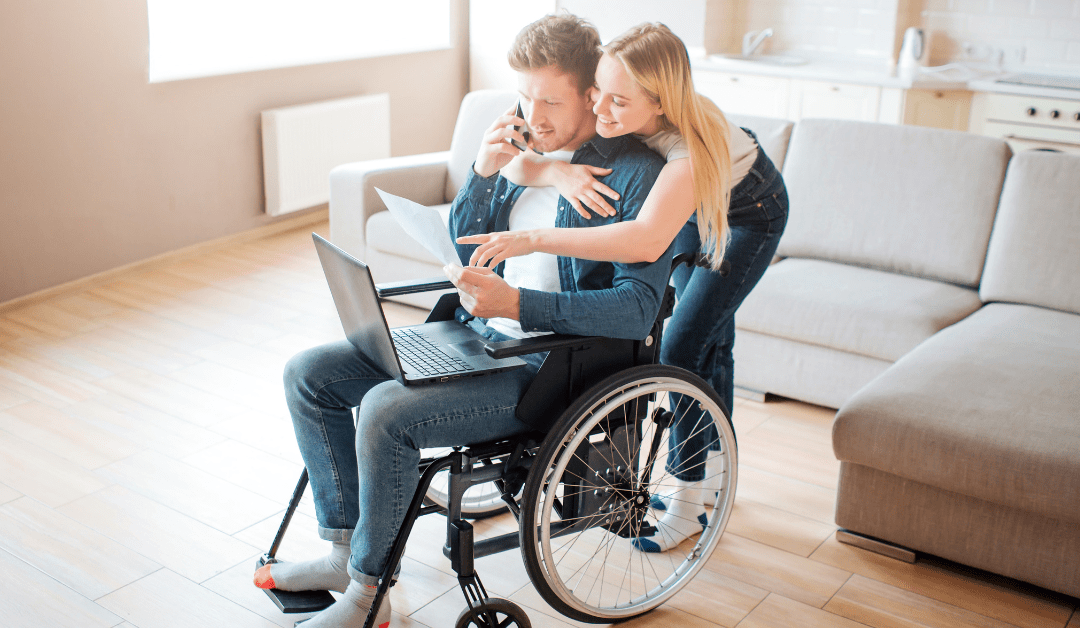Love knows no bounds, and disability couples relationships are a beautiful testament to that. Whether both partners have disabilities or one is an able-bodied partner supporting someone with a disability, these relationships can be incredibly fulfilling and enriching.
But just like any relationship, success requires open communication, teamwork, and a healthy dose of understanding. So, if you’re in a disability couple or considering venturing down that path, here are some tips to cultivate a strong and lasting bond:
Embrace Open Communication
Communication is the cornerstone of any healthy relationship, and it’s even more crucial in disability couples. Be honest and open about your needs, limitations, and expectations. Talk about how your disability affects your daily life and how your partner can best support you. Listen actively to your partner’s needs as well, and be willing to adapt and compromise.
Celebrate Strengths, Not Just Challenges
Disabilities are a part of life, but they don’t define you as a couple. Focus on each other’s strengths and what makes you a great team. Celebrate your individual achievements and support each other’s goals. Remember, a disability couple is not a couple defined by limitations, but by the unique way you navigate life’s journey together.
Redefine “Normal”
Every relationship is unique, and disability couples are no exception. Throw out the idea of a “normal” relationship and create your own definition of what works for you. Don’t be afraid to adjust activities or routines to accommodate each other’s needs. Focus on building a life together that feels fulfilling and allows you to thrive as a couple.
Become A Team
Disability couples are inherently strong teams. You’ll face challenges together, but by working collaboratively, you can overcome anything. Divide tasks and responsibilities based on your strengths and limitations. Be there for each other, offering support and encouragement. Remember, you’re in this together, and teamwork makes the dream work!
Maintain Independence:
While interdependence is key in a relationship, it’s also important to nurture individual independence. Encourage each other to pursue personal interests and hobbies. Maintain your own social circles and make time for activities you enjoy outside of the relationship. A healthy balance between togetherness and individual growth keeps the spark alive and fosters a sense of self-worth for both partners.
Self-Care is Not Selfish
Taking care of yourself is essential for the well-being of your relationship. Schedule time for relaxation, hobbies, and activities that bring you joy. Don’t be afraid to ask for help when you need it, whether it’s from your partner, family, or friends. A well-rested and recharged you is a better partner for your loved one.
Embrace Accessibility:
Planning dates and activities can sometimes require a bit more thought in disability couples relationships. Research accessible venues, restaurants, and activities you can both enjoy. Advocate for inclusive spaces and be open to exploring new things that cater to both your needs. Remember, a little creativity can go a long way in creating memorable experiences together.
Celebrate Milestones, Big and Small:
Don’t take each other for granted. Celebrate milestones big and small, from anniversaries to overcoming challenges together. Express your appreciation for your partner and the unique way they enrich your life. Small gestures of love and affection go a long way in strengthening your bond.
Seek Support When Needed:
There’s no shame in seeking professional help if you face communication challenges or need guidance on navigating specific issues related to disability. Couples counseling can be a valuable resource for developing healthy communication tools and resolving conflicts effectively.
Remember, Love is Love:
At the end of the day, love is love. Disability couples experience the same joys, challenges, and complexities as any other relationship. Focus on the love you share, the unwavering support you offer each other, and the unique way your strengths complement one another.
By fostering open communication, teamwork, and a deep appreciation for each other, you can build a disability couple relationship that thrives for years to come.
Real-Life Inspiration: Stories of Love and Strength
Disability couples come in all shapes and sizes, and their love stories are as diverse and inspiring as the individuals themselves.
Here are a few glimpses into the lives of some remarkable couples who have redefined what it means to have a successful relationship:
- Adventure Awaits: The Hiking Duo: Sarah, an avid hiker who uses a wheelchair, and Michael, a passionate outdoorsman, weren’t going to let her disability stop them from exploring nature. Together, they researched wheelchair-accessible trails and invested in adaptive hiking equipment. They even built a custom backpack system that allows Michael to carry Sarah on particularly challenging terrain. Their story is a testament to the power of teamwork and the joy of conquering challenges together.
- Love at First Sight (and Sign): Emily, who is deaf, and David, who is hearing, met at a coffee shop and instantly connected. Despite the initial communication barrier, they were determined to make it work. David enrolled in sign language classes, and Emily learned to leverage speech-to-text technology. Their relationship blossomed, proving that love can truly transcend any obstacle.
- From Roommates to Soulmates: Jessica and Alex were college roommates who developed a close friendship. When Jessica was diagnosed with a chronic illness, Alex stepped up to be her biggest supporter. Their bond deepened, and their friendship blossomed into love. They now navigate life’s challenges together, a testament to the unwavering support and love that can blossom from unexpected places.
These are just a few examples of the countless disability couples who inspire us with their strength, resilience, and unwavering love.
Their stories remind us that love truly knows no bounds, and with open communication, teamwork, and a deep appreciation for each other, disability couples can build relationships that are as beautiful and unique as the individuals involved.
Want A Helping Hand?
Hope Human Services provides disability services in Washington State. Our team doesn’t just provide support, but creates exceptional life experiences.

